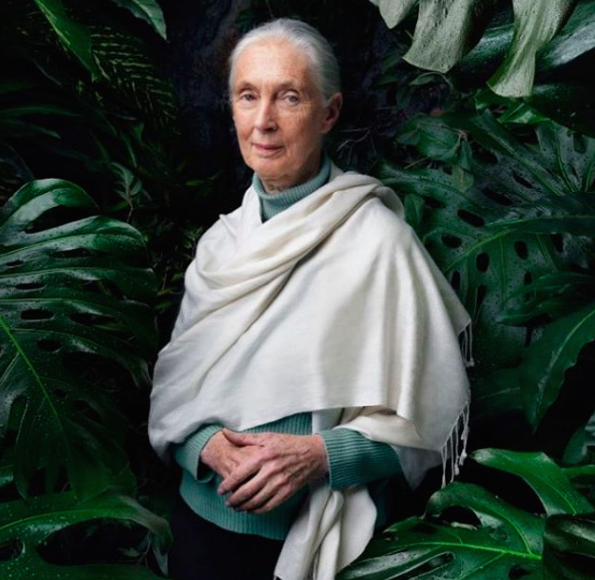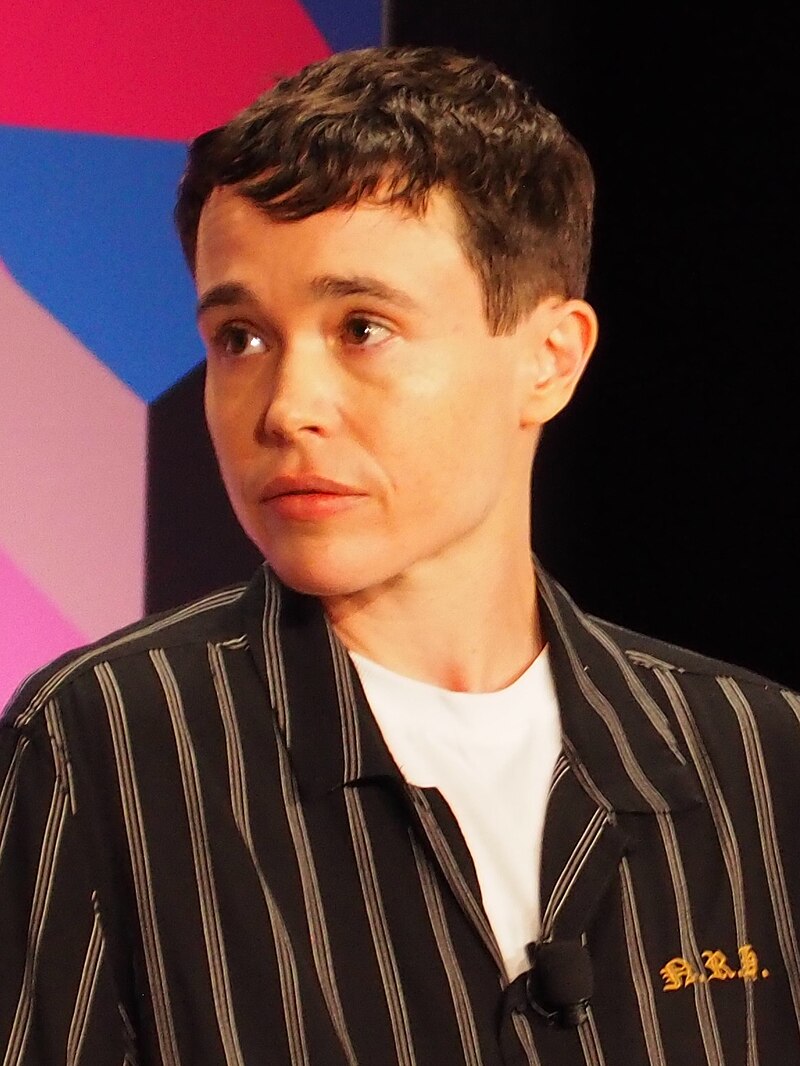The older generation of conservationists have often eschewed veganism or at least not carried the flag high in public. For many years, those who were leading the conservation efforts for endangered species and wildlife were disengaged from the rights of farmed animals. Thankfully, this is starting to change. Sir David Attenborough has stopped eating meat since several years ago. He now tells his global followers that “We must change our diet. The planet can’t support billions of meat-eaters” in his new film (and book) A Life on Our Planet. And Jane Goodall, who is best known for championing wild animals, is now making no secret that she wishes people would go plant-based for the planet.
In an interview with Vogue magazine, Goodall stressed the importance of choices people make in their lives in order to save the planet. “When you make a purchase, you ask yourself: Did this product and its manufacture harm the environment? Is it cheap because of child slave labor or inequitable wages paid to the people who produced it? Did it harm animals, like the terrible factory farms? And of course plant-based diets are very, very important. Plants are really coming into their own as our great saviors, like the forest that absorbs carbon dioxide from the atmosphere.”
From Goodall’s work in protecting the ecosystems in Tanzania, it’s no wonder she is well aware of the important role plants play for the climate, wildlife, and our own diets. Her Jane Goodall Institute has planted millions of trees around the world to absorb carbon.
Personally, Goodall has been a vegetarian since reading Peter Singer’s Animal Liberation in the 1970s. (Fun fact: Singer is 74 and Goodall is 86.) She says, “I don’t eat much food. I eat vegetarian or vegan food. Now [that] I’m at home I can be virtually vegan. On the road, it can be a bit difficult, but definitely [I always eat] vegetarian.” We understand Jane—being on the road for 300+ days a year can be really challenging for anyone’s diet!
Goodall also just launched a new collection of essential oils, a collaboration with Forest Remedies. The quartet of oils include ginger and ylang ylang from Madagascar, citronella from Togo, and frankincense from Somaliland, with 5% of the proceeds going to the Jane Goodall Institute. The packaging is made of recyclable and biodegradable, and sourced from responsible producers who have sustainable practices in place, from replanting trees and supporting farmers. The Jane Goodall collection also includes hand sanitizers and (forthcoming) toilet paper. Stuff we can all agree that we need, guys.
“What I love about this—and the hand sanitizer and toilet paper—is that they’re environmentally sustainable, they aren’t harming the environment, and they’re bringing pleasure to many, many people,” Goodall said.
In recent years, environmental advocates have been divided into two major camps of demanding political/corporate change, and appealing to individual action. Some in the first camp will no doubt criticize Goodall’s focusing on individual actions—aside from her calls to plant-based diet and conscious consumerism, her Roots & Shoots program empowers youth in sixty-five countries to take action locally. In other words, she’s not just lobbying Washington or wearing a “Vote” necklace. (She does believe you should vote—but there’s so much more you can do!!) We believe that both political and personal changes are crucial—truly, the phrase “all hands on deck” has never been more apt in human history as now. But political changes are glacially slow (Biden still refuses to commit to banning fracking and his climate plan is full of gaping holes) and corporations are still putting their profits over our collective survival (in leaked documents, Exxon revealed its plan for doubling its carbon emissions in the next 5 years).
In this context, individual action is not only the most immediate, but also most uplifting and empowering: when you change your own habits, you feel you *can* be doing something. Unless individuals show that they care, politicians or corporations won’t have any incentive to change. A global icon of Jane Goodall’s (and David Attenborough’s) stature publicly urging people to go plant-based is possibly the best thing to come out of 2020—for the planet and for the animals.
__
Photo: Jane Goodall Institute via Instagram






